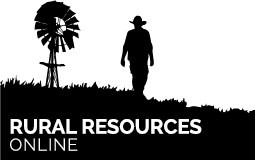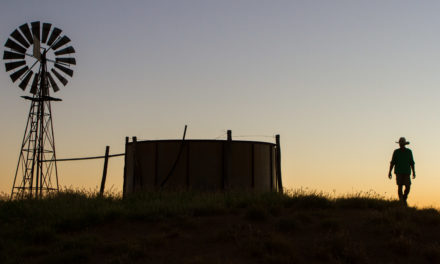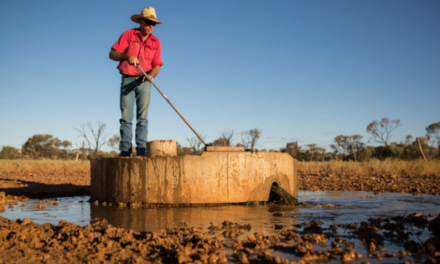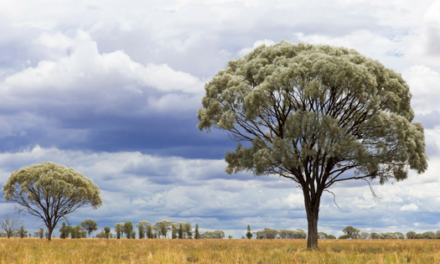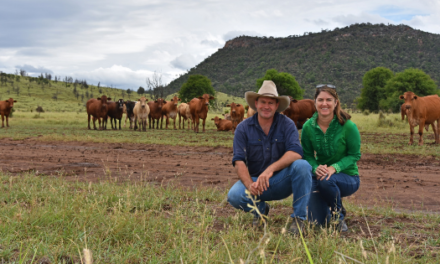For many landowners dealing with third parties to protect your assets feels like a battle, and negotiating with Coal Seam Gas companies is no different.
Unfortunately, if you are contacted by a mining company you cannot afford to ignore the situation and must start to immediately educate yourself and get your head around a few things.
The Entry Notice
Coal Seam Gas Conduct and Compensation Agreements negotiations must be undertaken prior to the commencement of any advanced activities.
Except for properties that are certified organic (all activity is deemed ‘advanced’) a resource company will initially approach a landholder and issue them with an Entry Notice.
Landholders must ensure they understand what the Entry Notice covers in terms of work to be undertaken. If a landholder is not sure whether the proposed activities are preliminary in nature they should contact the CSG Compliance Unit for clarification.
An entry notice does not have to be signed by a landholder.
If an entry notice is signed without a full understanding of what work is to undertaken then the landholder may be agreeing to extra conditions they are unaware of such as a deferral agreement.
Advanced Activities
A resource company must negotiate compensation with landholders prior to commencing significant, or advanced activities on their land.
The details of these agreements are usually formalised through a Conduct and Compensation Agreement, generally called a CCA.
The agreement covers both the agreed behaviour and the financial payment that the mining company agrees to undertake in order to minimise any interference with the farming business.
Coals Seam Gas Activity can Impact Large Areas of a Farm
Page 18 of ‘The Legal Guide for Primary Producers’ published by the Law Foundation Queensland and Queensland Law Society explains that:
Unless the land in question is restricted land, a landowner cannot prevent
the grant of a mining lease, lease, mining claim or mineral development licence
and cannot prevent exploration under an exploration permit for coal or minerals
merely by withholding consent.
Restricted land for mining tenements
Restricted land includes land:
i. within 100 metres laterally of a permanent building used mainly
as accommodation or for business purposes; or
ii. within 50 metres laterally of a principal stockyard, a bore or artesian well,
a dam or another artificial water storage connected to a water supply.
Generally, restricted land cannot be included in any mining lease, mining claim
or mineral development licence without the consent of the landholder. Also, an
exploration permit for coal or minerals does not authorise entry onto restricted
land without the landholder’s consent
The reality for farmers is that the impact of coal seam gas on farms can be extensive. It is therefore important for a landholder to understand the proposed effects so they are in the best position to identify the consequences and then ascertain what would be fair compensation.
The importance of the Farmgate Relationship
In terms of co-existence the Land Liaison Officer is arguably the most important employee of the mining company in the eyes of the landholder.
Without a good working relationship there will be problems. In the past many Land Liaison Officers were not the right people for the job and caused problems by simply not being professional or by failing to show respect to the landholder.
Landholders who are not happy with their designated Land Liaison Officer are within their rights to request a replacement. This is one area where there has been an acknowledgment by the mining companies that they got it wrong at times and they are recruiting far more suitable staff now.
Maintaining Good Communication is Essential
Mining Coal Seam Gas is a business and the companies involved are accountable to shareholders. It is also a high input industry and compensation payments are another input cost for the companies involved.
It makes sound financial sense for a business to reduce its input costs as much as possible to improve margins. In business not everyone operates with the same rules of engagement.
Landholders therefore owe it to their own business to ensure they are fully informed when they sign a CCA. Landholders have every right to ask questions and be satisfied with knowing what the impact of a CCA will be for their whole farm.
There are often visual, aesthetic and logistical impacts of mining infrastructure. Some impacts are temporary, however others are more permanent in nature.
The negotiation process is designed so that landholders are stepped through the process. The stipulated timeframes are only minimums and not the maximum allowed before the next stage.
It is in the interest of all parties to be committed to a satisfactory outcome. The party who elects to move to mediation is liable for the costs associated. It is in the landholder’s best interest to therefore continue to negotiate with a resource company and let them initiate mediation proceedings.
It is important to clarify at all stages of the Conduct and Compensation Agreement negotiations with a Coal Seam Gas company that a landholder is communicating with the company representative who has the authority to negotiate.
There is no industry-specific Code of Conduct
Unlike many other industries like banking, telecommunications, insurance and finance there is no industry-specific code of conduct and compulsory dispute resolution processes for the CSG industry.
The reality of this situation means that while it does not matter for those companies who do the right thing, there is a potential for bad behaviour to be rewarded.
The negotiating period is a critical time for landholders to ensure their rights are being protected and they are in control of the situation. It is much harder to manage misconduct or breaches of the CCA once it has been finalised if the wording of the document is flawed.
Master Agreements
Given the length and complex nature of a Conduct and Compensation Agreement there is a potential for negotiation fatigue every time a new agreement is needed. In some cases Opt Out agreements are agreed upon by a mining company and landholder.
An agreement is reached between the two parties that allows the mining company to undertake advanced activities on land where there is an established working relationship and no new CCA is considered necessary to cover additional activities being carried out.
Depending on the age of the existing agreements, this situation may be more in the favour of the mining company as it has the potential to deny the landholder additional benefits from a new Conduct and Compensation Agreement.
Rather than multiple Conduct and Compensation Agreements, many landholders are now negotiating a master agreement with a resource company that can be reused for additional activities and reduce future negotiation periods.
Stipulate Time Frames
Businesses cannot be operated efficiently if there are too many unknown variables. Resource companies should be able to provide a landholder with realistic timeframes, within which work will be completed.
Landholders should then stipulate the agreed timeframe for specific activities and advise the resource company that any work not completed by the agreed date will be under review.
Agreements should have flexibility but ultimately it should be recognised that landholders operate a business.
It takes a team to negotiate a good Conduct and Compensation Agreement
A landholder negotiating a conduct and compensation agreement with a coal seam gas company is negotiating key aspects of the future of their own business. Given the emotional connection to the business it is sometimes hard to be as objective as possible.
The right support is critical as resource companies need to know the landholder will not be a walkover.
If ground rules are not established and questions are not asked then the landholder will not get the most benefit from the negotiation period.
Any accounting, legal or valuation costs reasonably incurred to negotiate Conduct and Compensation Agreements are entitled to be reimbursed to the landholder.
Solicitors are vital when it comes to reviewing the terms and conditions of the agreement. If a solicitor is to be engaged during all stages of the discussions, then it is important to clarify this with the mining company.
The mining company is required to reimburse necessary and reasonable specialist fees and it is beneficial to stipulate how reimbursement will occur at the commencement of discussions.
Costs can be reimbursed to the landholder or directly billed to the resource company. It is important to also clarify from the start that all expenses will be reimbursed and not just when a CCA is signed.
Producers do not want to be out of pocket and should clarify this at the initial stage of negotiations.
It is also essential to find a solicitor who complements the landholder. Different solicitors and legal firms have different approaches. It is recommended landholders ask a potential solicitor about their approach and negotiation style to ensure it complements them before they engage their services.
Identify Biosecurity Concerns
Independent baseline weed assessments should be agreed to during Conduct and Compensation Agreement negotiations. Farmers need to identify and state all the weeds that they are concerned may enter the property from Coal Seam Gas activity.
It may be easier to list the desirable species wanted on the property and delegate all other species as being undesirable.
Insist on Independent baseline bore testing
Water is a precious commodity and in recent year there has been a lot of research into the impact of CSG on underground water.
Bores that are not registered are not included in any of the models used to predict future impacts on underground water.
Not all baseline testing undertaken is equal.
It is crucial for landholders to ask what will be tested and, if they are not happy with the proposal, to insist on the baseline measures they believe should be recorded.
Comprehensive tests should include depth levels, drawn down levels, gas detection, pressure, quality and flowrate.
Testing is important but ongoing monitoring is essential if issues are to be detected before they become problems.
Use the free On-line Tools that are available
Google Earth Pro is is a 3D interactive globe that can be used to aid planning, analysis and decision-making in many aspects of business.
For primary producers it is an excellent example of how technology is helping farmers be more efficient. Google Earth Pro has easy-to-use features and detailed imagery of Google Earth along with advanced tools for measuring distances between locations.
Once Google Earth Pro is installed, other layers can then be brought into the application. The CSG globe is an application within Google Earth that provides invaluable information for farmers.
Landholders can click and view information about wells and water bores from across Queensland right down to their individual properties and communities.
For Queenslanders the Coal Seam Gas Globe is available free online at: www.business.qld.gov.au and simply type ‘CSG Globe’ in the search tool for instructions on how to download and use the CSG Globe.
Conduct and Compensation Agreements are Binding on Title
Conduct and Compensation Agreements, once finalised, are binding on successors in title.
It is important therefore to take the time to identify impacts, identify ways to mitigate these impacts and if necessary determine how much compensation will be paid for those impacts that can’t be controlled.
The problem is not the known impacts, but rather the unforeseen impacts that will occur. It will be hard to address the issue of compensation for such unknown effects.
As technology changes there is likely to be identified changes on both sides and the more flexible the arrangements are initially, the more responsive the situation can be in the future.
